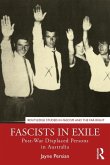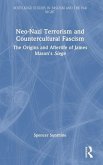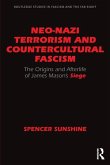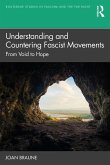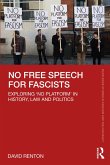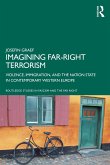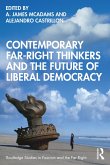Fascists in Exile tells the extraordinary story of the war criminals, collaborators and fascist ultranationalists who were resettled in Australia by the International Refugee Organisation between 1947 and 1952.
It explores the far-right backgrounds and continuing political activism of these displaced persons in Australia, adding to our knowledge of the development of Australian anti-communism in the 1950s. These individuals argued that they had been caught between National Socialism and Soviet communism. What might that have meant for their migration and resettlement trajectories? Beyond 'Nazi-hunting,' what can this tell us about the challenge they posed to international and national forms, both in Europe and in Australia? This book demonstrates that fascist ideation could not only survive the war's end but that it continued to be transnational and transcultural. At the same time, anti-fascist protests and then the war crimes investigations of the late 1980s exposed problematic pasts, a legacy with which Australia is still reckoning.
The text will appeal to those with an interest in the far right, Australian migration and refugee issues.
It explores the far-right backgrounds and continuing political activism of these displaced persons in Australia, adding to our knowledge of the development of Australian anti-communism in the 1950s. These individuals argued that they had been caught between National Socialism and Soviet communism. What might that have meant for their migration and resettlement trajectories? Beyond 'Nazi-hunting,' what can this tell us about the challenge they posed to international and national forms, both in Europe and in Australia? This book demonstrates that fascist ideation could not only survive the war's end but that it continued to be transnational and transcultural. At the same time, anti-fascist protests and then the war crimes investigations of the late 1980s exposed problematic pasts, a legacy with which Australia is still reckoning.
The text will appeal to those with an interest in the far right, Australian migration and refugee issues.
"Jayne Persian's book provides a gripping narrative of how war criminals entered Australia after 1945 and the lengthy debates that ensued. Sadly, as fascist ideologies spread once again, Persian's searching account of Australia's war crimes programme is both timely and instructive."
Martin Dean, War Crimes Historian
"Jayne Persian vividly recounts the post-1945 resettlement of Displaced Persons including individuals who managed to conceal their wartime collaboration and complicity in war crimes. She reflects on the legacy of concealment and subsequent fitful attempts to prosecute when, decades later, the Australian government ceased turning a blind eye. Her book is a notable achievement and deserves to be widely read."
Peter Gatrell, Professor, University of Manchester, UK
"Given the passage of time, one would have expected that World War II would have been confined to the dustbin of history. Yet, given the re-emergence of European fascist organisations, together with the increase of antisemitism, Jayne Persian's new book, Fascists in Exile, is an important and timely publication. As recently demonstrated, the Croatian Ustase is alive and well in Australia. Persian's concise account of the post-war Australian migration policies through the International Refugee Organisation sheds light on the origins of these fascist movements in Australia. It is a valuable, timely and important contribution to the literature."
Suzanne Rutland, Professor Emeritus, University of Sydney, Australia
"An important book that, on the basis of solid archival work, clearly and fairmindedly illuminates a key aspect of the history of the Right in Australia in the second half of the twentieth century. This is the story of migrants from Eastern Europe and the Soviet Union whose participation in Nazi war crimes in the Second World War, at first largely concealed from Australian view, were finally after decades subject to (unsuccessful) prosecution. But it is also the story of how the migrants' anti-communist and anti-Soviet concerns, notably in the "Captive Nations" movement, impacted Australian anti-communism and thus helped to shape Australian politics"
Sheila Fitzpatrick, Professor, Australian Catholic University, Australia
Martin Dean, War Crimes Historian
"Jayne Persian vividly recounts the post-1945 resettlement of Displaced Persons including individuals who managed to conceal their wartime collaboration and complicity in war crimes. She reflects on the legacy of concealment and subsequent fitful attempts to prosecute when, decades later, the Australian government ceased turning a blind eye. Her book is a notable achievement and deserves to be widely read."
Peter Gatrell, Professor, University of Manchester, UK
"Given the passage of time, one would have expected that World War II would have been confined to the dustbin of history. Yet, given the re-emergence of European fascist organisations, together with the increase of antisemitism, Jayne Persian's new book, Fascists in Exile, is an important and timely publication. As recently demonstrated, the Croatian Ustase is alive and well in Australia. Persian's concise account of the post-war Australian migration policies through the International Refugee Organisation sheds light on the origins of these fascist movements in Australia. It is a valuable, timely and important contribution to the literature."
Suzanne Rutland, Professor Emeritus, University of Sydney, Australia
"An important book that, on the basis of solid archival work, clearly and fairmindedly illuminates a key aspect of the history of the Right in Australia in the second half of the twentieth century. This is the story of migrants from Eastern Europe and the Soviet Union whose participation in Nazi war crimes in the Second World War, at first largely concealed from Australian view, were finally after decades subject to (unsuccessful) prosecution. But it is also the story of how the migrants' anti-communist and anti-Soviet concerns, notably in the "Captive Nations" movement, impacted Australian anti-communism and thus helped to shape Australian politics"
Sheila Fitzpatrick, Professor, Australian Catholic University, Australia


